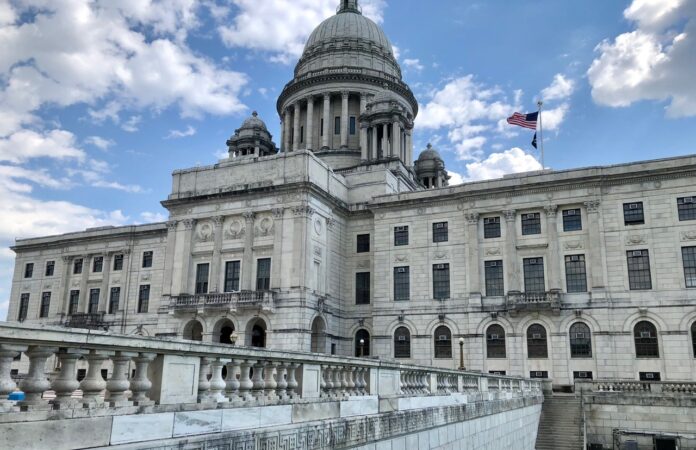
PROVIDENCE – The producers of an unnamed feature film being shot in Rhode Island are asking for just over $22 million in state tax credits.
While the application to the state’s motion picture tax credit program is public, available on the R.I. Division of Taxation website, the identity of the applicant, or the film, is not. The application identifies a feature film with in-state production cost projection totaling $73.6 million and requests $22.1 million in tax credits based on the state incentive program that gives eligible companies a tax break on 30% of in-state costs to shoot all or part of their production in Rhode Island.
R.I. Department of Revenue Spokesman Paul Grimaldi declined to identify the applicant in an email on Thursday.
The mystery comes a day after confirmation through a public casting call for extras that feature-length film “Hocus Pocus 2” will be shooting in Rhode Island this fall, according to various media reports.
In an emailed statement Thursday, Faye Zuckerman, a spokeswoman for the R.I. State Council on the Arts, confirmed that the “Hocus Pocus” production had applied for tax credits but declined to give further details.
“The amounts, due to confidentiality and trade secrets, are not disclosed until after the production has been completed, audited by the Division of Taxation and the tax credits have been issued,” Zuckerman wrote. “On August 15 of the year the tax credits are issued, notification of the amount of actual tax credits issued and name of production company is publicly displayed on the Division of Taxation website for transparency purposes.”
Rumors that the sequel to the original 1993 film was to be shot in Rhode Island have been swirling for months, with some speculating that the Disney+ movie may have been the reason why House Speaker K. Joseph Shekarchi proposed an extra $10 million to the state film tax incentive program in the fiscal 2022 budget.
Shekarchi at the time said the total $30 million for the tax program – up from the $20 million funded in prior years – said the additional money would help reel in big-name producers but did not identify specific companies or films.
While the additional funding for the film tax credit program passed, some lawmakers opposed the extra money, citing reports that show the state loses money through the incentive program and that most of the benefits fall on out-of-state companies rather than the local economy.
Indeed, a 2018 report from the R.I. Office of Revenue Analysis showed the state loses 73 cents of every dollar spent through the film tax credit. Also problematic is a history of noncompliance with the reporting requirements companies are supposed to follow to receive the tax credits, with nine out of 10 companies that benefited from 2016 to 2018 failing to submit at least some of the necessary documentation, Paul Dion, the state’s chief of the Office of Revenue Analysis, told PBN previously.
That both the state and the film office are refusing to identify who is asking for public dollars which, if approved, would eat up nearly three-quarters of the funding set aside in the fiscal 2022 budget, is a problem, according to House Minority Leader Blake A. Filippi, R-New Shoreham.
Filippi said the lack of transparency has been a “common thread” in the problematic past of the film tax credit, including in the latest budget discussions.
“It appears now that we jacked up the film tax credit appropriation specifically for whatever this film is,” Filippi said. “This wasn’t even disclosed to us before we voted on it.”
While Filippi was unaware of the identity of the applicant, he added that “whoever it is, it’s a big fish.”
He reiterated prior objections that the incentive program has failed to create the economic return-on-investment that proponents hoped, instead benefiting major national companies with little impact on local businesses or job creation.
Four other production companies have applied for state film tax credits in recent months -two feature films, one theatrical production and one that was listed as both a TV series and a documentary. Both the other film production applications say they were from producers who have shot in Rhode Island before, and are seeking much smaller tax credit amounts: $900,000 and $826,000, respectively.
Tax credits are only approved after shooting has finished and documentation detailing dollars spent on local businesses and wages paid to local workers are submitted and reviewed.
Nancy Lavin is a PBN staff writer. You may reach her at Lavin@PBN.com.










